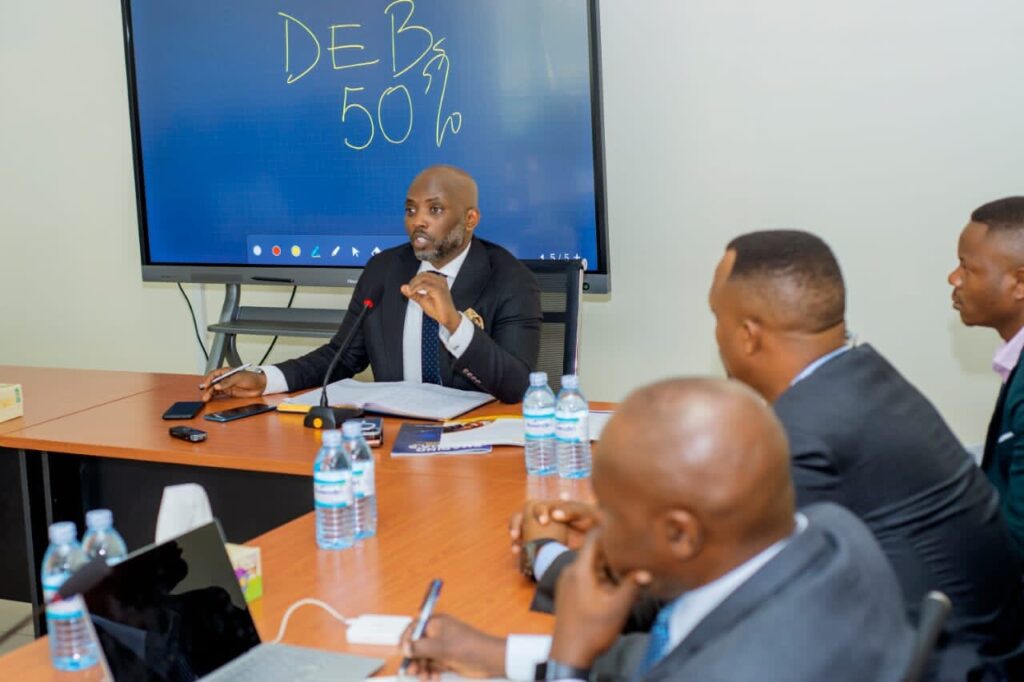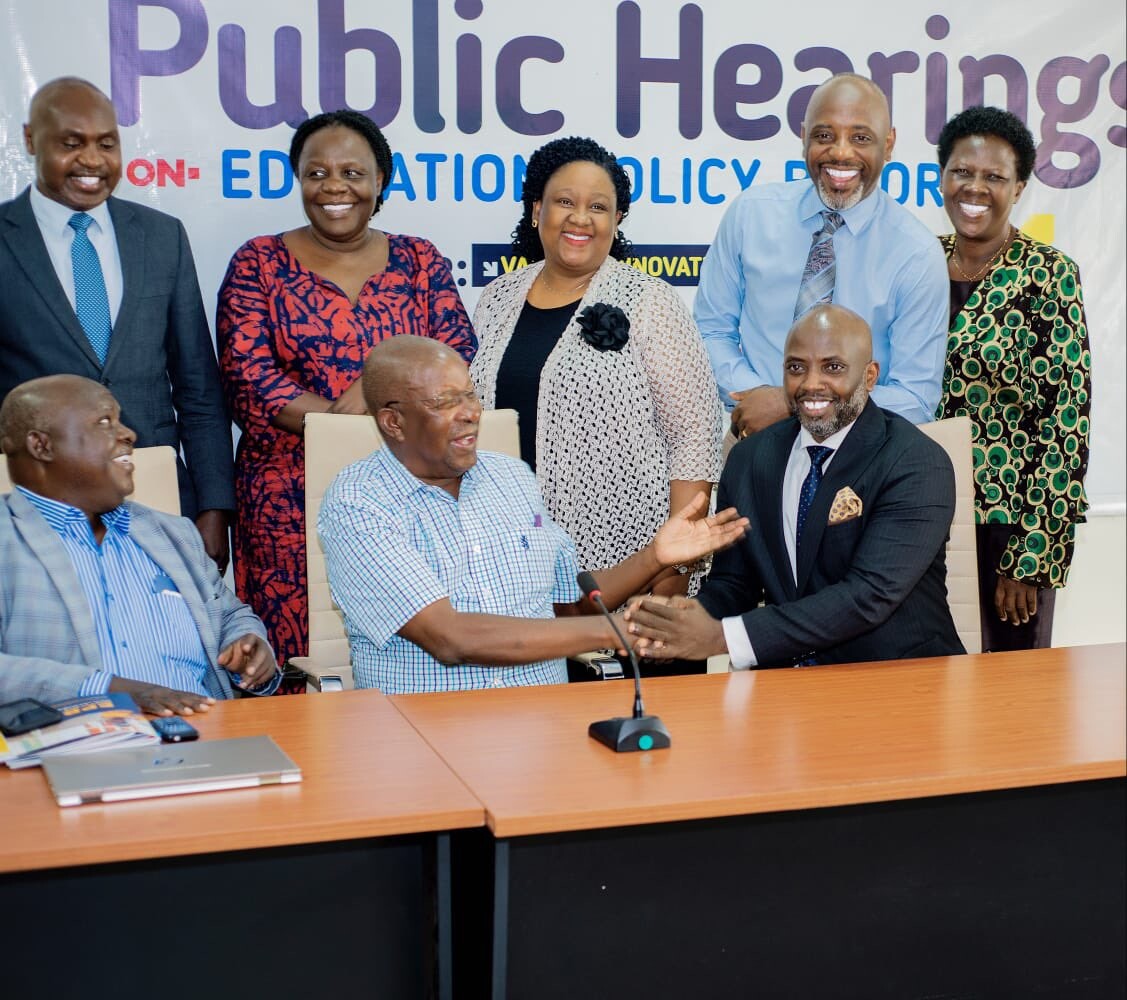Kampala, (UG): Victoria University Vice-Chancellor, Professor Lawrence Muganga has joined the ranks of Ugandans calling for the scrapping of national examinations in favour of continuous assessment advanced, restructuring of UNEB, and the implementation of a regional-based education system in the country.
Dr Muganga was Tuesday appearing before the Education Policy Review Commission where he emphasized that the existing system is at stake, as it prioritizes outcomes derived from a national examination rather than focusing on competencies.
The pragmatic educationist underscored that while there is widespread agreement that the current system is ineffective, there is a reluctance to bring about disruption due to powerful entities and individuals benefiting from the status quo, impeding reform efforts.
In critiquing the notion of national examinations, Muganga expressed concern about schools openly marketing themselves as factories that guarantee first-grade results. He pointed out that parents are actively competing to enrol their students in these schools.
Unfortunately, he [Muganga] observed that even educationists advocating for change seldom question what the students are learning in such institutions.
According to him, the Education Policy Review Commission should demonstrate courage by addressing the issue head-on and recommending the elimination of national examinations, particularly the Primary Leaving Examination and the Uganda Certificate of Education.

Dr Muganga further argued that national examinations have become a nuisance, causing unwarranted anxiety among learners to the extent that military and police presence is deemed necessary during the examination process.
Several individuals have advocated for the elimination of national examinations, with this recommendation being a common theme in various memoranda. The World Bank initially suggested scrapping such examinations as a measure to improve the transition rate from primary to secondary education.
The National Planning Authority (NPA) has also proposed phasing out the Primary Leaving Examinations (PLE) by 2027, arguing that this national assessment is irrelevant, as outlined in a document presented to the Education Policy Review Commission.
Dr. Joseph Muvawala, the Vice Chairperson of the commission, acknowledged that it appears the commission is leaning towards the elimination of certain national examinations, although he did not provide specific details. He added that once the national exams are out of the picture, parents will start demanding the right results from schools.
However, he pointed out a crucial question from laypeople that should not be overlooked: “If you eliminate the examination, what will our students be based on to enrol in higher schools?”

What is the alternative?
Muganga said that the elimination of national examinations shouldn’t raise concerns, as school transition certificates could be developed based on the continuous assessment that learners accumulate throughout their educational journey.
In his presentation, he proposed a comprehensive evaluation system where district evaluations or assessments could contribute 25% to overall performance, 20% from school continuous assessment, 20% from projects and presentations, and 10% based on character and student participation (both in class and extracurricular activities).
Continually, 5% can be assessed on patriotism, community, and environmental responsiveness, 15% on volunteering, enterprise or apprenticeship, and the remaining 5% allocated to emerging technology skills.
The VU Vice Chancellor also proposed substituting the would-be phased-out national exams with teacher-designed continuous assessments, specifically customized to address the distinct regional or local needs of students in particular districts.
UNEB Revamp?
Muganga advocated for reforming the Uganda National Examinations Board (UNEB) into a Research, Evaluation, Assessment, and Development (READ) body.
This revamped entity according to him would consist of specialized staff assisting District Evaluation Boards in creating a fundamental assessment gains framework.
“With the District Evaluation Boards (DEB) in place, each district would be empowered with the authority to design curricula that cater to the specific needs of the people in their respective areas. Additionally, this approach aims to eliminate the cross-movement of learners, especially in primary education, ensuring that students attend schools within their communities,” Muganga noted.
However, Dr. Jacklyn Makaaru Arinaitwe, a member of the commission, expressed interest in investigating whether the district might be too small a unit given the available resources and the continuously increasing number of districts.
Muganga responded to her clarifying that based on his concept, the school district could potentially cover a larger area, such as a region or a group of districts, depending on what the commission deems more relevant and effective.
He also advocated for a comprehensive competence-based education model from primary to higher learning institutions.
While he appreciates the recent adoption of competence-based education in lower secondary levels, Muganga highlights existing gaps pointing out the challenge of universities not yet transitioning to this approach despite secondary schools embracing it.
As an illustration, he asserted that public universities spend annually spending more than 15 billion shillings on purchasing paper and printing answer books yet their students lack basic on operating and writing reports using computers.
“In the professional world, employers don’t require handwritten reports. So, why do universities invest resources in handwritten exams when their students lack the basic skill of typing on a computer? If examinations were conducted using computers, students would graduate with a valuable skill,” he added.
Monica Monge, a member of the commission, displayed interest in Muganga’s viewpoint, inquiring whether a similar approach could benefit lower levels to accommodate gifted learners. Muganga affirmed that this flexible approach could indeed be implemented in secondary schools.
He underscored that if a student authentically acquires the necessary competencies in a shorter timeframe, there is no valid reason to hinder their progression to the next educational level. According to his perspective, rigid adherence to fixed education policies is not the most effective solution for nurturing and advancing gifted learners.
Do you have a story or an opinion to share? Email us on: dailyexpressug@gmail.com Or follow the Daily Express on X Platform or WhatsApp for the latest updates.

